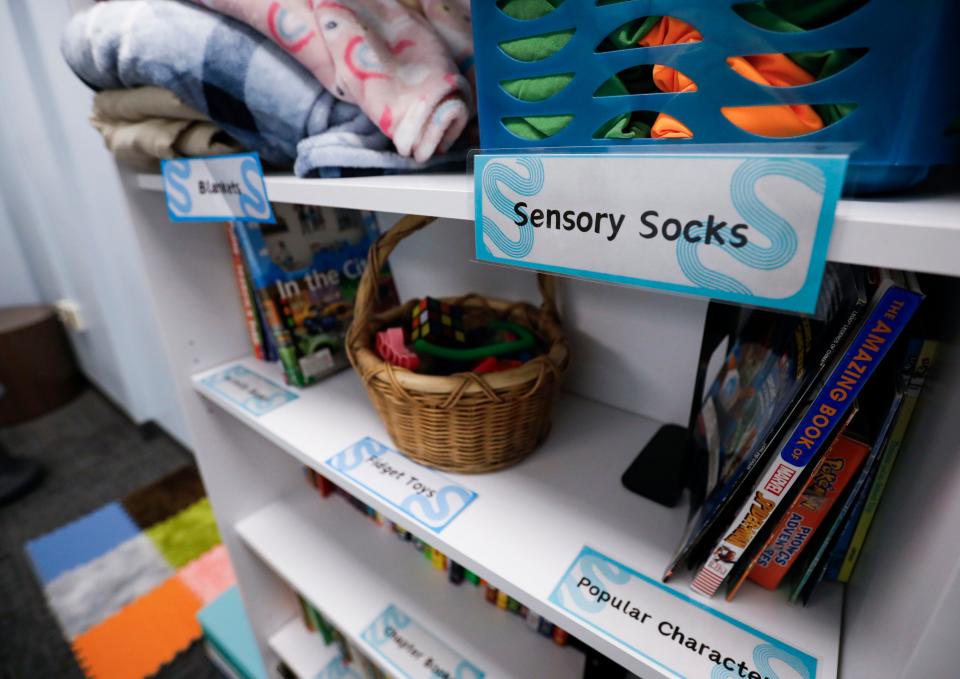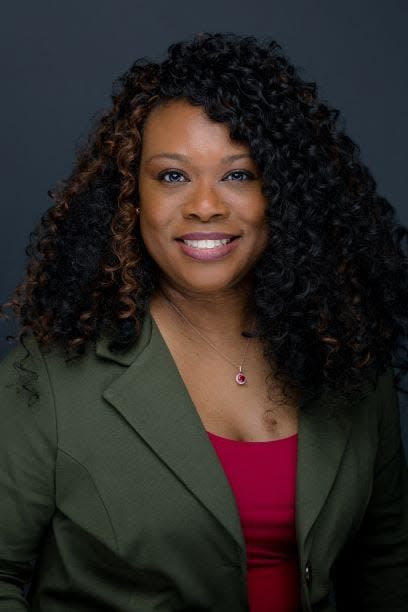My son has autism. Schools misunderstand him. I fear police will, too.
“I don’t want my child to die,” the words left my quivering lips during a recent meeting at my son's school. I eventually left that meeting in tears.
My son will attend high school in the fall, and while that may be a joyous transition for some, I am afraid. I am afraid because he is a Black and Mexican child who presents as a typical teen and is met with impatience and aggression from those who do not know him.
His behavior could be seen as a threat and might be met with violence by authorities. It's not an idle concern. Children like my son are seven times more likely to encounter police than “neurotypical” individuals.
Just one example of how quickly and horrifically things can go wrong: In March, sheriff's deputies in San Bernardino County, California, responded to a 911 call made by the mother of 15-year-old Ryan Gainer. Ryan, who was diagnosed with autism, reportedly was having an episode and approached deputies holding a large gardening tool. Two deputies shot and killed the teenager.
In 2012, while stationed in Heidelberg, Germany, my military family's life took an unexpected turn. It was the year my oldest son was diagnosed with autism, sensory processing disorder, and later, attention deficit hyperactivity disorder and intermittent explosive disorder.
The diagnosis marked the beginning of a journey filled with challenges but also moments of resilience and growth. I wanted to get him help as soon as possible.
I refuse to downplay my disability: Rejections have piled up since disclosing my disability on job applications. ADA fails us.
Early intervention services became a dominant part of our family's routine as he received multiple therapies daily. Alongside that, my son received an individualized education plan (IEP), a road map to guide him through his academic journey into adulthood.
Little did we know that our journey would take us across continents, presenting us with unforeseen obstacles along the way.
My son was denied entry into school

In 2019, military orders led us to MacDill Air Force Base in Tampa, Florida. Excited for our new chapter, I set out to register my two school-age children at Tinker Elementary, a public school nestled within the base. But that seemingly routine task soon spiraled into a bureaucratic mess.
After registration, the administrators notified me that my daughter would start school the next day. The news wasn’t the same regarding my son's registration. I was told my son was not accepted into the same elementary school as his sister because of his disability, and the school administrators claim they did not have the resources to accommodate his unique needs.
I was shocked and confused. In all my family’s moves, my son had never been denied entry into school. I was informed that he would be placed in another school due to his disabilities.
How do you parent a child with autism? Here's what I've learned as mom of my beautiful son.
Seeking guidance, I turned to the MacDill Air Force Base’s Exceptional Family Member Program office, hoping for support and reassurance that a possible mistake had been made. What I encountered was disheartening. I was instructed to take my concerns to the Army's EFMP office, which was more than six hours away and in another state.
The unrealness of the situation hit me hard – how could a military family in need of immediate assistance be left stranded without local support?
Children deserve safety and equality in education
The placement of students with disabilities in Hillsborough County, Florida, struck me as inherently flawed. Instead of integrating students like my son into locally zoned schools, decisions were made based on district needs, segregating them from their peers.
The ramifications were profound. My son was denied the opportunity to attend school alongside his siblings and neighbors, robbing him of vital social interactions and stability.
Worse, the district's failure to review his IEP comprehensively resulted in an inadequate educational placement devoid of the individualized support he required.
Opinion alerts: Get columns from your favorite columnists + expert analysis on top issues, delivered straight to your device through the USA TODAY app. Don't have the app? Download it for free from your app store.
Reflecting on my experience, I can't help but advocate for change. School liaisons within military installations must be equipped with the knowledge and resources to address the complexities faced by families like mine. They should serve as allies, navigating the intersection of local academic laws and military policies to ensure every child receives equitable treatment.

As military families serve across the globe, their journeys should be met with understanding and support, not bureaucratic roadblocks. It's time for systemic change, where the needs of exceptional families are not overlooked but prioritized, fostering a community where every child can thrive, regardless of their challenges.
I believe my son's life is at risk without adequate support services and well-trained school resource officers and law enforcement. He deserves safety and equality in education.
Marla Bautista is a military fellow columnist for USA TODAY Opinion.
You can read diverse opinions from our USA TODAY columnists and other writers on the Opinion front page, on X, formerly Twitter, @usatodayopinion and in our Opinion newsletter.
This article originally appeared on USA TODAY: My son has autism. We must train police to serve people like him
